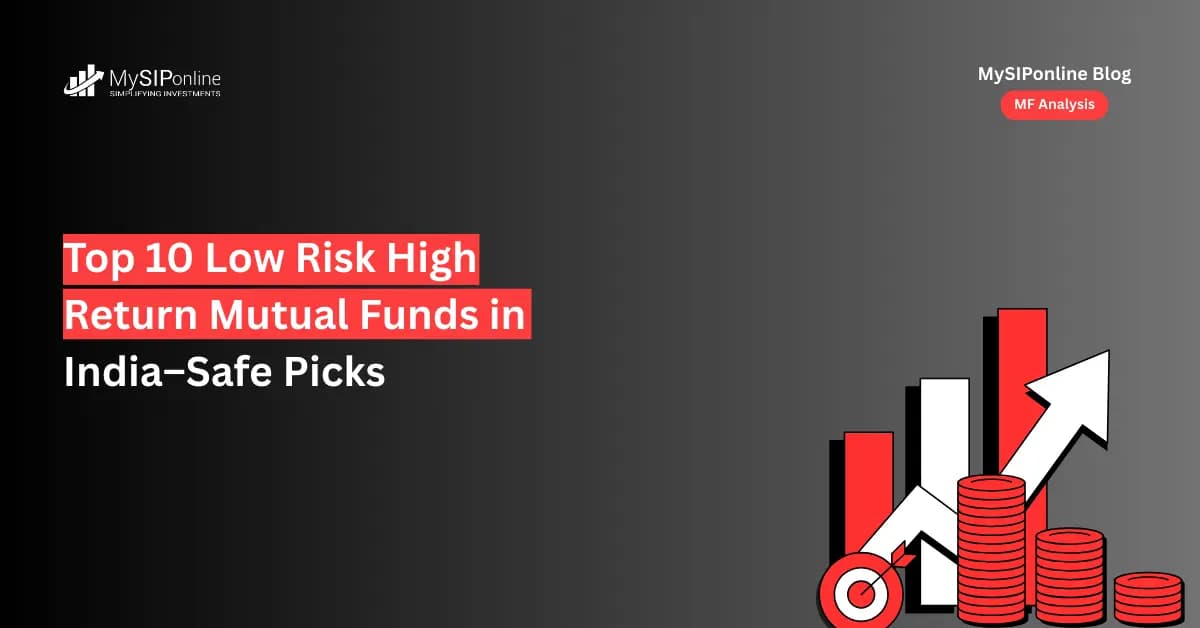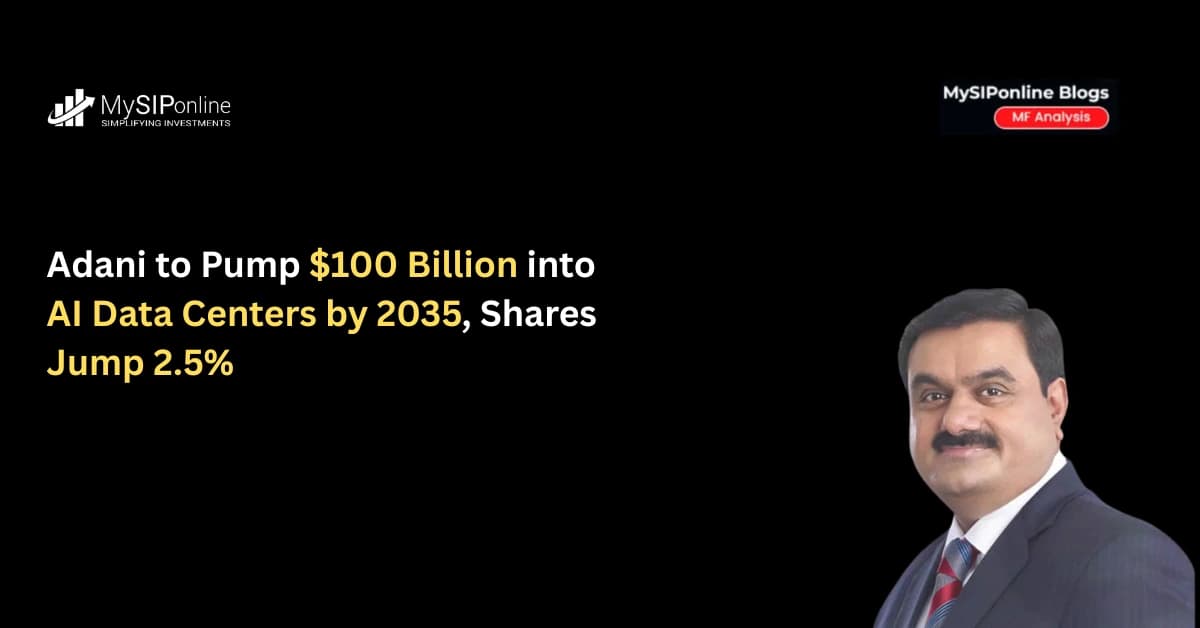Table Of Content
What is inflation?
In the realm of Mutual Funds, inflation is defined as a long-term increase in the general price level of goods and services in an economy. This reduces a currency's buying power, which means that the same amount of money invested in mutual funds now buys fewer products and services than it did previously. Inflation is commonly stated as a percentage, indicating the rate at which prices rise.
Consider the price of a litre of milk. It was INR 15 in 2002, but it is currently INR 48. This price increase is referred to as inflation.
So, what causes inflation? One explanation is that there is more money in the economy. Another factor is that particular items are in high demand, which drives up prices. This means you'll need more money to buy the same number of goods as before.
It's critical to understand that inflation impacts everyone differently. What your pocket money buys now may not be the same as it was yesterday. When we discuss inflation, we are looking at how prices change for everyone.
How inflation is calculated?
The National Statistical Office (NSO), which is part of the Ministry of Statistics and Programme Implementation (MoSPI), has issued preliminary data for the All India Consumer Price Index (CPI) and Consumer Food Price Index (CFPI) in November 2023 for the Rural, Urban, and Combined categories. CPIs for Sub-Groups and Groups for All India and all States/UTs are also included in the report. Personal visits were made to 1114 urban markets and 1181 villages throughout all States/UTs, with a high coverage rate of 99.9% for villages and 98.6% for urban markets in November 2023. Prices were reported to be 90.0% for rural areas and 92.2% for urban areas.
The Consumer Price Index (CPI) and the Wholesale Price Index (WPI). These indexes compare consumer (retail) and wholesale inflation rates, taking into account various consumer expenditures such as food, education, healthcare, electronics, and routine things, as well as the bulk costs of commodities sold to merchants and vendors.
CPI (Consumer Price Index) uses sampled commodities to track monthly price changes in 260 categories. It climbed by 6.07% in February, with the base year changed to 2010 for convenience of calculation. The Ministry of Commerce and Industry assesses the WPI (Wholesale Price Index) weekly, including 697 goods. The February WPI increased to 13.11% from 12.96% the prior month.
Governments attempt to kerb inflation by closely monitoring essentials, while people must carefully manage their expenses and savings. Despite prospective pay increases, inflation frequently outpaces income growth, and not everyone receives the same rise.
Average Inflation Rate in India
Inflation Rate on Average:
To provide a thorough view of price fluctuations, the average inflation rate is estimated throughout time using indices such as CPI or WPI.
COVID-19 causes an exponential rise in inflation:
The COVID-19 epidemic wreaked havoc on economies around the world, generating supply chain challenges and altering consumer behaviour.
Government policies, such as stimulus packages, altered inflation dynamics, resulting in temporary price spikes in some places.
Current Inflation Rate:
Refer to reports from official sources such as central banks or renowned financial institutions for the most up-to-date and reliable information on inflation.
Central banks closely monitor inflation and alter policy to ensure price stability. Inflation may have stabilised in some circumstances when economies recovered, although this differs by location.
The Consumer Price Index (CPI) in India showed variations in retail inflation in the previous year. According to the most recent data from the Ministry of Statistics and Policy Implementation, the CPI increased to 5.55% in November, up from 4.87% in October 2023. Notably, the lowest CPI statistic for the year, 4.25%, was reported in May. Over the last two years, the CPI reached a high of 7.79% in April 2022 and a low of 4.06% in January 2021.
In contrast, the Wholesale Price Index (WPI), which measures the whole price of items before they reach the retail sector, showed a unique trend. The November WPI was 0.26%, a significant improvement from the (-)0.52% contraction in October. This upward trend continued, with WPI data declining to (-)0.26% in September and (-)0.52% in August of the same year. These numbers provide insight on the various processes at work in the Indian economic landscape, which influence both retail and wholesale price fluctuations.
How to Beat Inflation?
Investing in assets that give a higher rate of return than the average inflation rate is a common approach to battle inflation. Equities or Equity Mutual Funds are regarded as strong solutions for outpacing inflation.
Before beginning mutual fund investments, keep the following points in mind:
Choosing the Best Funds:
It is critical to select funds managed by knowledgeable and experienced fund managers. These managers are critical in navigating the market, identifying high-growth stocks, and making strategic investment decisions.
Diversification Techniques:
Diversification is a key component of sound investing. Investors can limit risks by diversifying their investments across numerous funds, including those focused on small, mid, and large-cap equities, as well as funds utilising diverse investment styles or techniques. Diversification helps to balance the overall performance of the portfolio, especially during market swings.
Disciplined Investing Strategy:
Discipline is crucial in the investment process. Regular and careful investments, regardless of market ups and downs, allow investors to acquire shares at various price points. This systematic strategy is known as systematic investing, and it aids in the achievement of a fair average purchase price over time. Consistent investments add to the compounding effect, which increases profits and can potentially outperform inflation.
Conclusion:
Understanding inflation and its implications is critical for making informed investing decisions. Inflation, which typically ranges between 4-6%, denotes the progressive rise in the general price level of goods and services. This understanding is critical for selecting appropriate Systematic Investment Plan options capable of providing returns of 12-15%, outperforming inflation, and facilitating money compounding. Such understanding enables investors to protect their purchasing power and produce real long-term wealth growth.
According to recent data, India's CPI would be 5.55% and WPI will be 0.26% in November 2023, indicating economic difficulties. The global inflationary increase caused by COVID-19 required government intervention. Consider investments that outperform the average rate of return, such as equities or equity mutual funds, to combat inflation. For long-term financial growth, emphasise well-managed funds, diversification, and a disciplined investment approach. To make sensible investing selections, keep up to date on inflation patterns and market dynamics.











